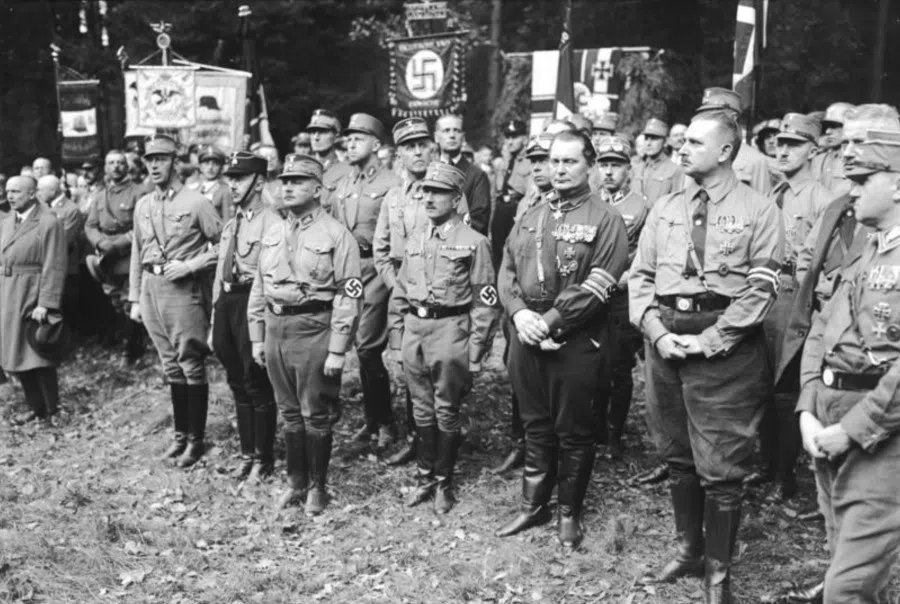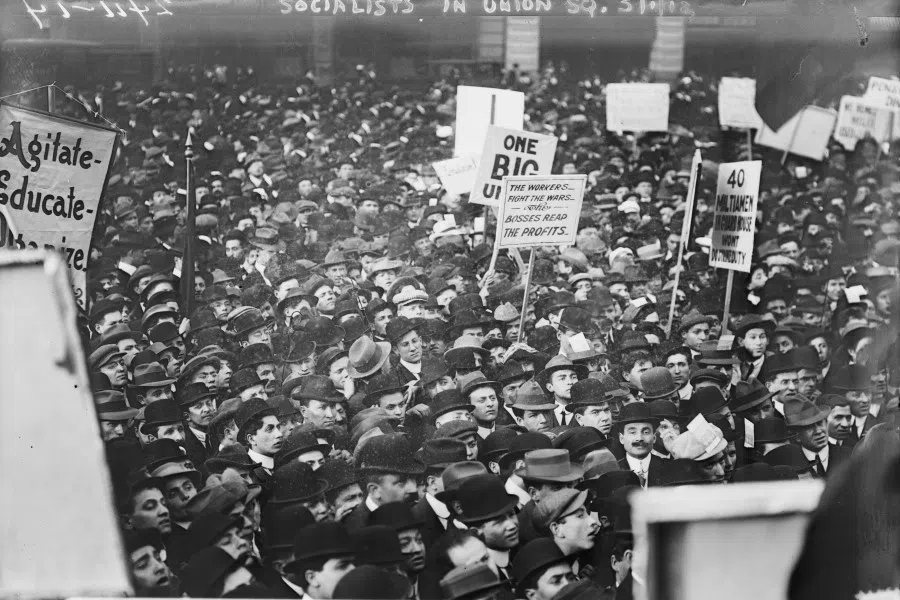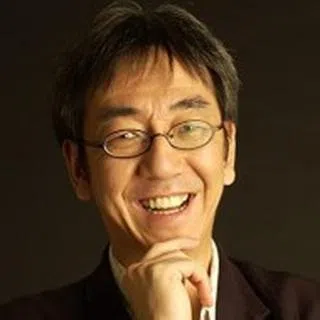Socialism and Nazism: Branches of the same tree?
While Nazism and socialism fall on opposite ends of the spectrum, they are more alike than they seem. Hong Kong commentator Chip Tsao points out that both ideologies began with similar intentions, but took divergent paths to meet their objectives and garnered different reactions from the West.

Nazism and socialism started off in the same way. Both had noble intentions. One was for the love of country, the other was for universal equality. Both began with a series of questions with clear answers that could not be denied.
The Nazis asked: Our country is being bullied and our people have gone through years of humiliation. Are you part of our people? If so, do you love our country? The answer to those questions would be an unequivocal yes.
The socialists said: The rich-poor gap is wide, and wealth is concentrated in the hands of a minority. Those who are born rich will inherit wealth without studying or working hard, while those who are born poor never get a break. Is this fair? The answer would be, of course, no.
Then the socialists asked: Since this is not fair, then as humans pursuing our dreams, shouldn't we be unselfish and do our duty for our fellow human beings and not waste our lives, but have a sense of mission and commit to improving this unfairness?
...a nation does not suffer humiliation for no reason.
These questions are clear-cut, and to young people and the simple-minded and impulsive, there is only one answer.
But the Nazis and socialists left out the whys and wherefores between the questions and answers, and jumped directly from the signs and symptoms surrounding the questions to the moral answers.

Take the example of a country chafing at the humiliation of being butchered under an unfair agreement. The Treaty of Versailles at the end of World War I led to Germany losing territory. But what started it all? In World War I, Germany was the initial aggressor. The most intense battle in World War I was the Battle of the Somme in northern France. Since Germany lost, naturally the victors would not be shy in claiming reparations. As Mao Zedong said, one does not love or hate for no reason. In the same vein, a nation does not suffer humiliation for no reason.
However, polarising and simplifying those questions and appealing to black-or-white feelings and sentiments was making use of human weakness.
Each generation grows up, and experiences what it is to be young and fired up. Each community has a large group of people who are not smart, poorly educated, and whose intellect is not developed. Those questions were specially designed to target this population.
Then, the Nazis and socialists sought to gain power in their own way, whether through riots or coups, or both, while claiming it was a justified revolution. Of course, parliamentary elections could be another way. The Nazis and socialists had various means to reach their ends, including political propaganda, controlling the media, and promoting educational policies.
Nazis and socialists - different paths, same goals
After gaining power, Nazis and socialists both drew up laws and restricted freedom of speech. Nazis immediately clamped down on the opposition and their actions culminated in the Jewish genocide. The socialists gradually established the rules of "political correctness", opposing the spread of Christianity in universities, and - seeing the racial extermination by the Nazis - adopted anti-racism, universal love, and equality as tenets, and tagged Christianity as the oppressor of Western culture.
So far, each camp has taken a different route to the same goal. Nazism has long faded in the West, leaving only a very small minority, because the young generation is always chasing their dreams, and in their idealism, joining hands to transcend borders in universal love is surely more palatable than the narrow-minded nationalism that erects walls.

And so, even though the target is also young people, if the Republicans in the US advocated patriotism, the market would be much smaller than Obama spreading universal love and equality. On the contrary, China is forcefully encouraging patriotism among the younger generation and "sinicising" the Uighurs and Tibetans, which goes against universal love and equality, so that the West and Europe - especially Germany, which has been there - knows what kind of path China is on.
A single stem carried two blooms; one created Hitler, the other created Stalin and other disciples in the Far East.
The extreme left and right are branches of the same tree. Even the little political party that Hitler joined was first called the German Workers' Party; after it grew in strength, this party that was established in a hotel was renamed the National Socialist German Workers' Party (NSDAP). "Workers" and "society" were buzzwords in left-wing thinking, while the concept of "nation" belonged to the right.
After the Nazis and socialists gained power, they moved towards extremism - each disallowed saying this and expressing that. A single stem carried two blooms; one created Hitler, the other created Stalin and other disciples in the Far East.
The tyranny of the Nazis happened in Europe, so the Westerners of today have witnessed up close and seen the skeletons of the Jews in the concentration camps. But the extreme examples of socialism were geographically far removed from one another. British intellectuals in the 1930s were unaware of the realities behind the Iron Curtain in the Soviet Union, and thought the Soviet Union had achieved a utopia with no class distinctions. This was especially attractive to the progressive elites in Cambridge, and led them to become Soviet spies.

Western intellectuals' bias towards communism
Over the past few decades, Western intellectuals have built up a resistance to Nazi nationalism, but are inherently attracted to communism, because it is openly opposed to racism, which reminds people of a lesson called Hitler. However, the totalitarian threat of communism remains popular in Western universities because they accept and even laud Karl Marx. Besides, communist North Korea and Cambodia are not in Europe or across the Mediterranean Sea, but thousands of miles away in Asia. This is unconscious racism, but the Western left would not admit it or face up to it.
Also, Nazism started in Germany, which makes it part of Western culture, so the guilt weighs heavily on the Western world. As for the main figures of extreme socialism like Lenin and Stalin, they both had Mongolian lineage, and the ones they hurt were Russians and Asians, and in Western white culture, the Slavic countries are further away than the Latin and Germanic countries; there is also unconscious racism in thinking of the Slavs as "lower".
And so, each generation of Western people grows up attracted to socialism. Of course, they grow older, and when they reach middle age, they may return to conservatism and traditionalism. But each generation goes through a shift in phases from passion to rationalism, which is good for the passing down, renewal and infiltration of extreme leftist thinking. From Nixon to Reagan to Trump, different generations of irrational, unthinking American youths have been sure that these men were their enemies. But other generations have instinctively connected to Carter, Clinton, and Obama, and cheered for them like idols.
The West rejects one and embraces the other, because socialism advocates globalism and equality, but Nazism from day one was about exclusion and hate.

They all feel the rich-poor gap is unfair, and that the industrial bigwigs and IT kings started exploiting workers after they got rich, because in the West, people like Bernie Sanders and many university professors have publicly advocated such ideals, while avoiding Nazi-style patriotism.
The West rejects one and embraces the other, because socialism advocates globalism and equality, but Nazism from day one was about exclusion and hate.
But extreme socialism is also about hate; when its followers act up, they also howl and turn into zombies with twisted faces. At that moment, whether it is the anti-Trump Black Lives Matter protesters in the US or the Chinese Communist Party supporters in China, they all feel that they are "rising" and their cause is right. They will always feel that they are noble people acting for justice, rather than zombies.
This article was first published in Chinese on CUP media as "極左極右,同氣連枝".





